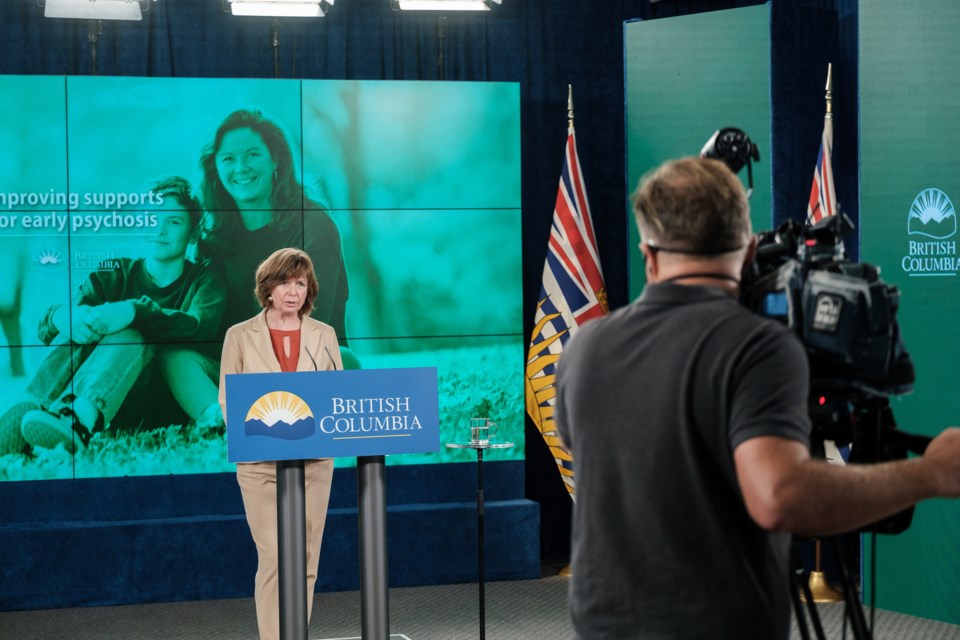The latest overdose numbers released this week show the highest rate of drug-related deaths ever recorded in the first half of a year in BC, and they make one thing perfectly clear: There needs to be a new minister, and a new approach, to get a handle on this public health crisis.
Thankfully, the current government has a few people who might be up to the task.
Health Minister Adrian Dix or Attorney General David Eby are two names that come immediately to mind, who could be given the overdose file today with a blank cheque from the finance minister to do what is necessary to stop the deaths, and marching orders from the premier to aggressively pursue drug decriminalization, safe supply, and whatever other measures are necessary without waiting another day for the laggards in Ottawa to authorize it.
Eby would be a smart choice, given he’s already working on homelessness and has the legal powers as attorney general to take extraordinary steps for the province to begin simple drug possession decriminalization and rapidly-expanded free opioids (without prescription) to those who need it, now.
To hell with waiting for Health Canada, the federal attorney general, RCMP commissioner, Ottawa bureaucrats or whomever else is holding up drug-law reform with hand-wringing tens of thousands of kilometres away while British Columbians die.
Both ministers are smart, competent, problem fixers. Even their opponents in the BC Liberal and Green caucuses respect them for the intelligent and methodical way they go about solving big problems.
Finance Minister Selina Robinson would be a good option too, though her statutory obligations to produce a budget by February might not allow the time to dedicate to the crisis.
None of those ministers would have committed the enormous faux pas that current Mental Health and Addictions Minister Sheila Malcolmson did on Tuesday, refusing to do interviews when the new overdose numbers were released, and apparently being caught off guard that it was International Overdose Awareness Day.
Malcolmson had to be publicly shamed into making a frantic series of calls to the media – but even then she had nothing new to say and no solutions to offer.
Malcolmson is a new cabinet minister. She may be excellent in other roles. She doesn’t have to be punished or demoted - simply find her another portfolio. How many more months have to go by with record-breaking death counts before the person in charge changes?
The structure of her ministry - now often referred to as the Ministry of Air after a recent Orca article - is an abject failure using almost any metric. It has almost no budget, spends all its money on staff, isn’t able to change health care policy, isn’t able to change legal policy and isn’t able to administer its own programs.
Since it was created, under a different minister in 2017, the rate of deaths per 100,000 people has spiked from 20.4 per cent in 2016 to 38.9 per cent in 2021, and more than 5,275 people have died due to illicit drug toxicity.
That’s not in any way to blame the current government, ideologically or otherwise, for the deaths. Nor is it to say the trajectory was any better when a different party was in power. It is merely to point out that the problem has worsened and the approach must change.
The idea of having a standalone mental health and addictions ministry was a public relations exercise gone wrong. Even though it will be somewhat embarrassing for the current government to have to admit it failed, that’s no excuse to leave it in place if deaths can be avoided by taking action.
The change in course requires another step as well.
The opposition BC Liberals and Greens should put down their swords and not gloat, attack, or shame the government when it swaps ministers and ministries. It’s not a time to claim a political victory on the backs of thousands of dead.
Give the provincial government space to make the change, and support the reform without tainting the move. Hell, attend the press conference and stand beside the premier in a show of unified support. Organize the same non-partisan town halls currently used to raise COVID-19 vaccine awareness, but this time for drug overdose and tainted supply warnings. Stand together in a time of crisis.
If it doesn’t work, opponents can always go back to swinging for political heads.
Toxic drug overdoses are now the leading cause of death for people aged between 19 and 39 in the province. More than 7,700 people have died since the coroner started tracking the overdoses.
We can’t just keep doing what we’ve been doing. It simply isn’t working.
Rob Shaw has spent more than 13 years covering BC politics, now reporting for CHEK News and writing for The Orca. He is the co-author of the national best-selling book A Matter of Confidence, and a regular guest on CBC Radio.
SWIM ON:
- Rob Shaw: The Liberal platform targets speculators. Problem is, one of their Vancouver candidates is quite a prolific one.
- BC’s Ministry of Mental Health and Addictions spends most of its tiny budget on staff, doesn’t fund any programs or control services in other ministries, and isn’t involved in decisions at locations it trumpets as success. So, asks Rob Shaw: why does it exist?
- In April, Justin P. Goodrich welcomed Jeff Hardy and Madeleine Hardin of LifeGuard Digital Health to look back at was was (then) five years of BC being in an official public health emergency for drug-related deaths. It's an excellent discussion, thoughtful and touching - I encourage you to check it out.



